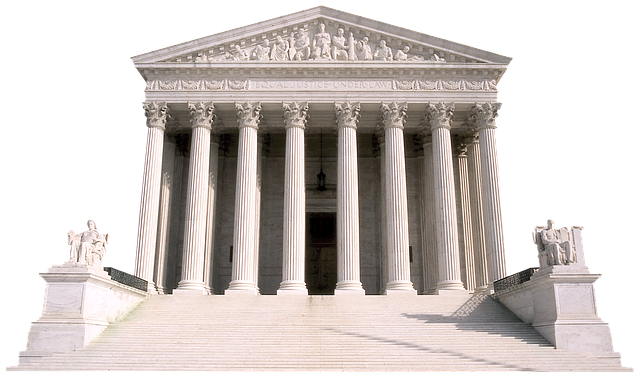Interlocutory Appeals In Appellate Law

Have you ever wondered if you can challenge a court decision before ruling your case entirely?
An interlocutory appeal rule lets parties in appellate court dispute specific rulings while the rest of the case goes on. This guide focuses on the rules for this complex part of appellate litigation, offering clarity and guidance.
Key Takeaways About Such An Appeal
- An interlocutory appeal allows a party to challenge certain court decisions before the case is fully concluded.
- There must be a significant question of law with substantial grounds for disagreement recognized by the courts to file an interlocutory appeal,
- The Collateral Order Doctrine is a critical exception that permits immediate appeals on orders separate from the case’s merits, such as disputes over jurisdiction or qualified immunity.
- Only specific cases meet the criteria for interlocutory appeals, and they require certification from both district and appellate courts to proceed.
- Interlocutory appeals suspend ongoing trials while appellate courts review critical legal issues. They aim to prevent potential injustices or clarify laws during litigation.
Understanding Interlocutory Appeals

Interlocutory appeals occur when a case is still in progress, and one side believes the trial judge made a legal error that needs immediate correction.
Unlike regular appeals, which occur after final judgments or verdicts, interlocutory appeals focus on decisions made during the trial process that could significantly affect the outcome. They offer a way to address issues without waiting for the entire motion and case to finish, but they are only available for some court decisions.
Courts typically consider interlocutory decision appeals exceptions because they can interrupt ongoing trials and prolong legal proceedings. An order must involve an essential question of law with substantial grounds for disagreement to be qualified for filing an interlocutory appeal.
For instance, if a district court decides someone’s Fourth Amendment rights were violated and the evidence should be excluded from trial, this might lead to an interlocutory appeal if it could drastically impact the lawsuit’s direction. Lawyers use them strategically to argue over legal interpretations and review other aspects before proceeding with their cases.
Requirements To Immediate Appeal For An Interlocutory Summary Judgment In Appellate Court

In appellate court, challenging an interlocutory motion for summary judgment requires precise steps.
Litigants must get the district judge’s certification, showing the issue is critical and warrants an early review.
Such an appeal can proceed after obtaining permission from both the lower and appellate courts. Getting the district judge’s certification ensures that only pivotal legal questions interrupt the normal flow of a trial. Although this tool is used sparingly, it is a crucial safeguard in complex cases to prevent potential injustices or procedural errors before reaching a full final judgment.
Interlocutory Appeals and the Collateral Order Doctrine
Interlocutory appeals break from the standard practice of waiting until a final decision is rendered to appeal or challenge a court ruling. Instead of such appeals, they permit litigants to appeal specific judicial orders before the case concludes.
This most appealable part requires an extraordinary circumstance that justifies deviation from typical procedure. A district court judge must acknowledge that the matter involves a controlling question of law with substantial ground for difference of opinion and that an immediate and appealable part may materially advance the termination of litigation.
The Collateral Order Doctrine presents an important exception within the rules in this context. Crafted by the Supreme Court, it allows certain trial court decisions to be appealed immediately, even if they don’t end the lawsuit.
These are decisions separate from the merits of the case. Delaying the filing of an appeal until after final judgment would effectively deny legal rights claimed in serious disputes over jurisdiction or qualified immunity. By employing this doctrine, higher courts can address critical issues without waiting for a final, comprehensive resolution at the trial level, enabling swift consideration where delay might otherwise compromise justice.
Practical Examples of How Interlocutory Appeals Work
Imagine a company being sued for fraud. During the pre-trial process, the court decides that certain vital documents can be used as evidence at trial. The defense believes these documents violate attorney-client privilege.
Instead of waiting for a final judgment, they filed an interlocutory appeal with the Circuit Court of Appeals. This move put the trial on hold while the appellate court reviewed whether those documents should be protected under attorney-client relationship laws.
In another scenario, appellate courts might consider a civil action where one party requests a temporary restraining order (TRO) to prevent alleged harm. Suppose the district judge grants this TRO, but the defendant or opposing party thinks it’s unjustified because it would cause severe financial damage to their business operations before any wrongdoing is proven. In that case, they might seek an interlocutory appeal.
They would ask the circuit court to examine if issuing such an order was appropriate based on federal statutes and prior case law. Moving forward from these examples, let’s delve into how “The Role and Impact of the Collateral Order Doctrine” influences such cases.
The Role and Impact of the Collateral Order Doctrine
Building on these real-life scenarios, the collateral order doctrine is a critical tool for litigants. It punches through the usual barriers to appeal, allowing court orders that resolve essential issues utterly separate from the main case to be immediately challenged. This rapid response capability can preserve rights lost if one had to wait until final judgment.
The doctrine influences civil and criminal cases, often shaping outcomes by providing an escape hatch for crucial matters like class certification or injunctions. Enabling parties to appeal pivotal decisions without delay maintains the integrity of legal proceedings and prevents irreversible damage that could occur due to prolonged litigation.
Conclusion
Interlocutory appeals shake up the usual legal process by allowing parties to challenge certain decisions before a case ends. They are critical tools for litigants and defendants facing potentially pivotal judgments during ongoing trials.
These special appeals require carefully navigating stringent criteria to address crucial issues promptly. Doing so allows them to preserve rights or clarify laws without waiting for final judgment.
Interlocutory appeals are essential but complex elements within the Appellate Court of Appeals system, functioning to streamline justice where it matters most.
